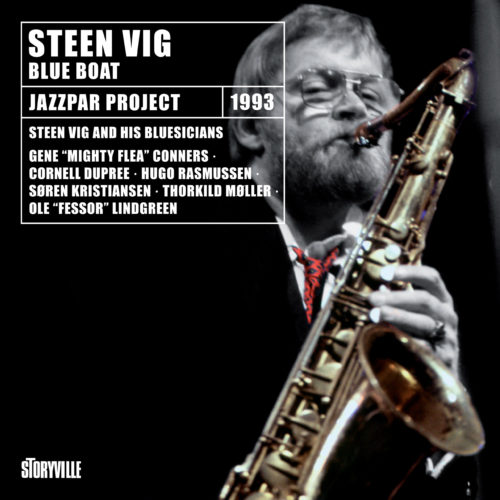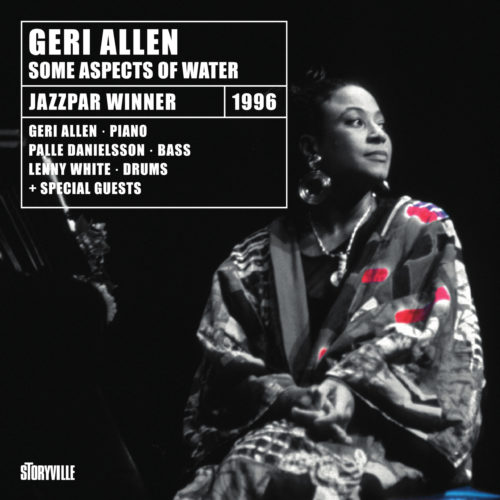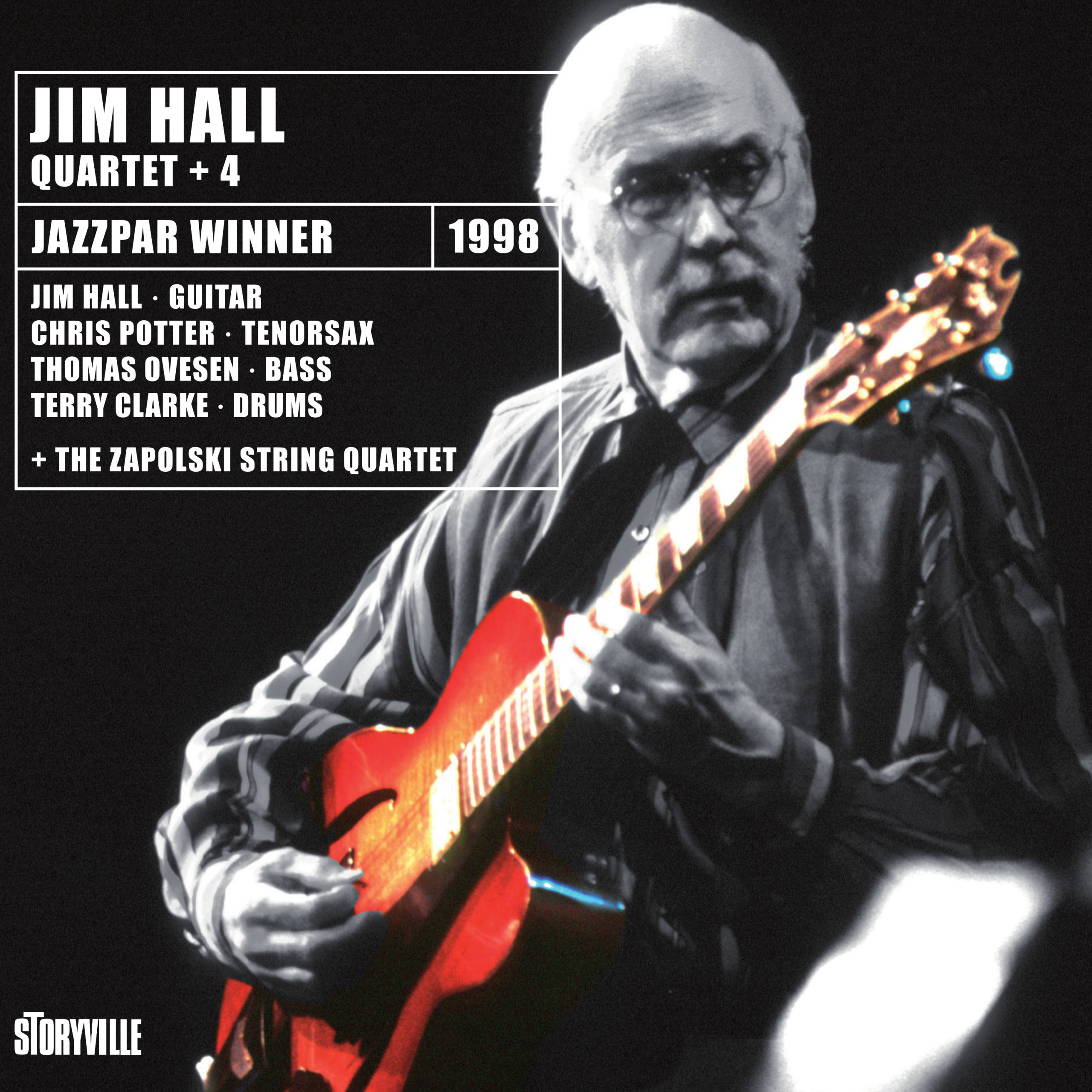The history of the JAZZPAR AWARDS constitutes, in retrospect, a significant development in the recognition of jazz by international arbiters of taste, and by distributors of monetary recognition.
When the late guitarist and composer Jim Hall emerged triumphant in 1998, it was because his name evoked the most unanimous praise, out of the dozens of artists who had come up for discussion. Already at that point, his career had covered more than 40 years and evoked past associations with people such as Chico Hamilton, Jimmy Giuffre, Sonny Rollins and Art Farmer, plus the fact that they had some of their most interesting and unusual groups when Jim Hall happened to be in them. Some of his other frequent but less regular collaborators, like Paul Desmond, Gerry Mulligan, Bill Evans or Ron Carter, also clearly chose him for the stimulation to be gained from the experience. What these great artists (and many more) found in Hall was a player of great sensitivity and intelligence, to whom the idea of cooperation was second nature but whose approach was completely individual. This duality is not unique within a jazz framework, but the truth is that many jazz players do not manage to be simultaneously identifiable and compatible with others. Personality is obviously the key factor, and Jim’s can perhaps be described as confident but self-effacing. Musically, that translated into a style which was both cogent and laconic – which makes a lot of sense but not a lot of noise – and it’s this combination that lends itself to taking on board others’ ideas and complementing rather than contradicting them. In band terms, it bestows the possibility of being a leader through example, without being either too malleable or too dictatorial.
No wonder, then, that less well-known musicians were more than happy to be associated with Hall, and those who worked with him in Denmark are excellent examples. Chris Potter (born January 1 1971) was then another promising newcomer, who himself won the JAZZPAR prize in 2000 and is now regarded as a leading saxophonist of his generation. The Canadian drummer Terry Clarke (born August 20 1944), then based in New York, had played and toured with Hall since at least 1975, when he made the first of several albums with him. The bassist on the Danish tour was the latest in a long line of local virtuosi, Thomas Ovesen (who shared Jim Hall’s birthday, December 4, Ovesen being born in 1965 and Hall in 1930).
As is usually the case with JAZZPAR tours, there was more than one Danish musician involved but, unusually, at Jim’s request the others were a string quartet, formed of members of the Radio Symphony Orchestra and led by Russian violinist Alexander Zapolski. This combination of talents enabled Hall to pursue aims which were present throughout his career. He had made a notable re-examination of the dialogue between the needs of composition and improvisation in his recent albums, especially with ensembles differing from the conventional trio and quartet line-ups constituting the majority of Jim’s output in earlier decades. Although he recorded duos of guitar-and-piano as early as 1962 (with Bill Evans) and, in 1976, duos of guitar-andvoice (with his wife Jan) and guitar-and-drums (with Terry Clarke), nevertheless in the 1990s he had created carefully chosen chamber groups with, for instance, a couple of string players or a handful of brassmen, often with no drums or with drums but no bass. That kind of freedom is clearly evident here, for instance in the interplay with Clarke during “Stella By Starlight”, and with Potter towards the end of “Chelsea Bridge” (where Potter picks up Jim’s earlier quotation from “Rockin’ In Rhythm”) and in the duet encore on “In A Sentimental Mood”.
The compositional element, and the continuity of Hall’s career, is brought into focus by the two pieces with strings and the fact (somehow emphasized by the omission of one other octet track, for lack of space) that they were written 45 years apart. If these seem more concentrated and more ‘serious’ than the earlier part of the program, that feeling is deliberately undermined by the first encore, Zapolski’s arrangement of “Purple Haze” by Jimi Hendrix, the guitarist who 30 years ago threatened to blow away all the subtleties personified by Hall. Jim may have the same initials as Hendrix but, hearing him use an octave pedal and then de-tune his A-string while sounding all the while exactly like Jim Hall, you can see another example of self-effacing confidence.
Jim Hall – Guitar
Chris Potter – Tenorsax
Thomas Ovesen – Bass
Terry Clarke – Drums
+ The Zapolski String Quartet (track 4-6):
Alexander Zapolski – Violin
Jacob Soelberg – Violin
Iben Bramsnæs Teilmann – Viola
Vanja Louro – Cello
Recorded live, Holbæk Jazzklub, April 3, 1998
Falkoner Scenen Copenhagen, April 5, 1998
Stella By Starlight (Remastered 2021)
Chelsea Bridge (Remastered 2021)
Mr. Blues (Remastered 2021)
Thesis (Remastered 2021)
Quartet +4 (Remastered 2021)
Purple Haze (Remastered 2021)
In A Sentimental Mood (Remastered 2021)
Related products

Blue Boat

Some Aspects of Water (REMASTERED 2020)

Leewise (Remastered 2020)



